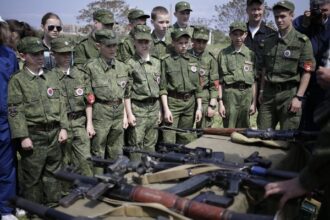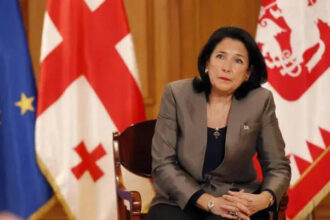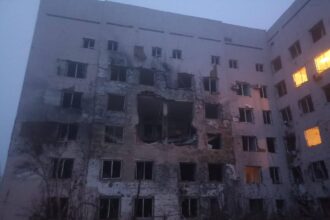Georgia and Ukraine have a long history of close relations. Both countries have experienced revolutions that led to the establishment of democratic pro-Western governments. However, they have also faced challenges from Russia, which has attempted to bring them back into its sphere of influence through military attacks.
In Georgia, after a brief war that resulted in 20% of the country being occupied, it appears that Moscow has succeeded in pulling the country back into its orbit. The ruling Georgian Dream party has been implementing oppressive laws that mimic those of Russia, effectively reversing years of progress towards European integration and halting Georgia’s path towards EU accession.
This shift towards Russia has sparked widespread protests in Georgia, a country that has traditionally been pro-Western and pro-Ukrainian. It has also caused pushback from key figures in the country’s public and political life. As a result, relations between Kyiv and Tbilisi have also deteriorated.
Despite the protests and opposition from Western partners, the Georgian Dream party has passed laws that target civil society, independent media, and the LGBTQ+ community, similar to those in Russia. When asked why they pushed for these laws, President Salome Zourabichvili, an independent figure, stated that it is a question for the ruling party to answer. She has opposed these laws and even vetoed them, but her efforts have been unsuccessful.
President Zourabichvili, who is a strong advocate for Georgia’s European and Euro-Atlantic aspirations, believes that the upcoming parliamentary elections in October will be a referendum on the country’s future. She has found herself in opposition to the ruling party, despite receiving their endorsement during her presidential campaign in 2018.
In a recent interview with The Kyiv Independent, President Zourabichvili discussed the deteriorating relations between Georgia and Ukraine, the growing influence of Russia in Georgia, and the upcoming elections. She expressed her opposition to the controversial laws and her disappointment with the Constitutional Court‘s delay in assessing their constitutionality. She also highlighted the similarities between these laws and the tactics used by Russia to suppress civil society.
In conclusion, the situation in Georgia is concerning, with the ruling party moving closer to Russia and implementing laws that restrict fundamental rights and freedoms. The upcoming elections will be crucial in determining the country’s future and its relationship with Ukraine and the West.
Read More @ kyivindependent.com




